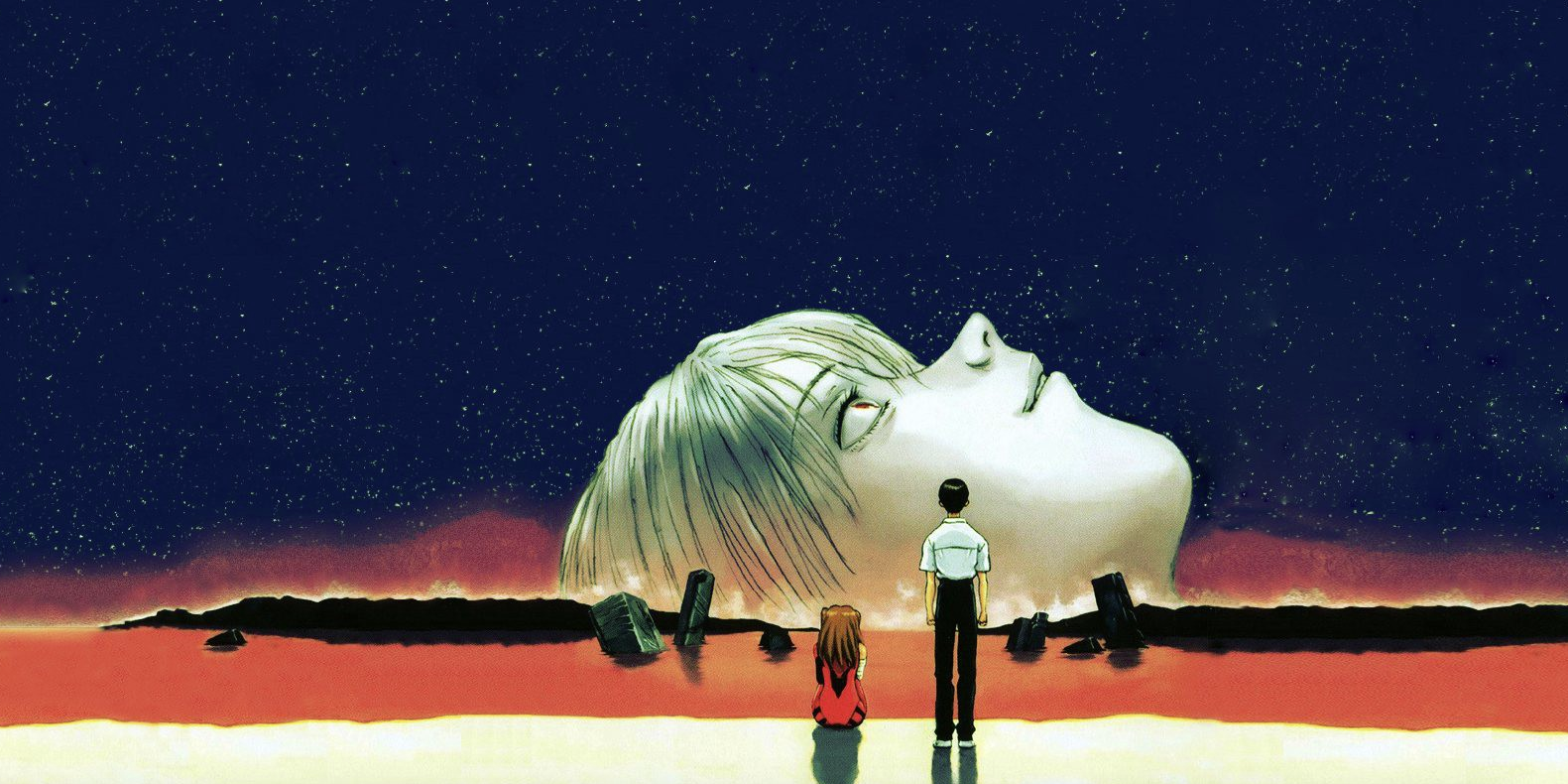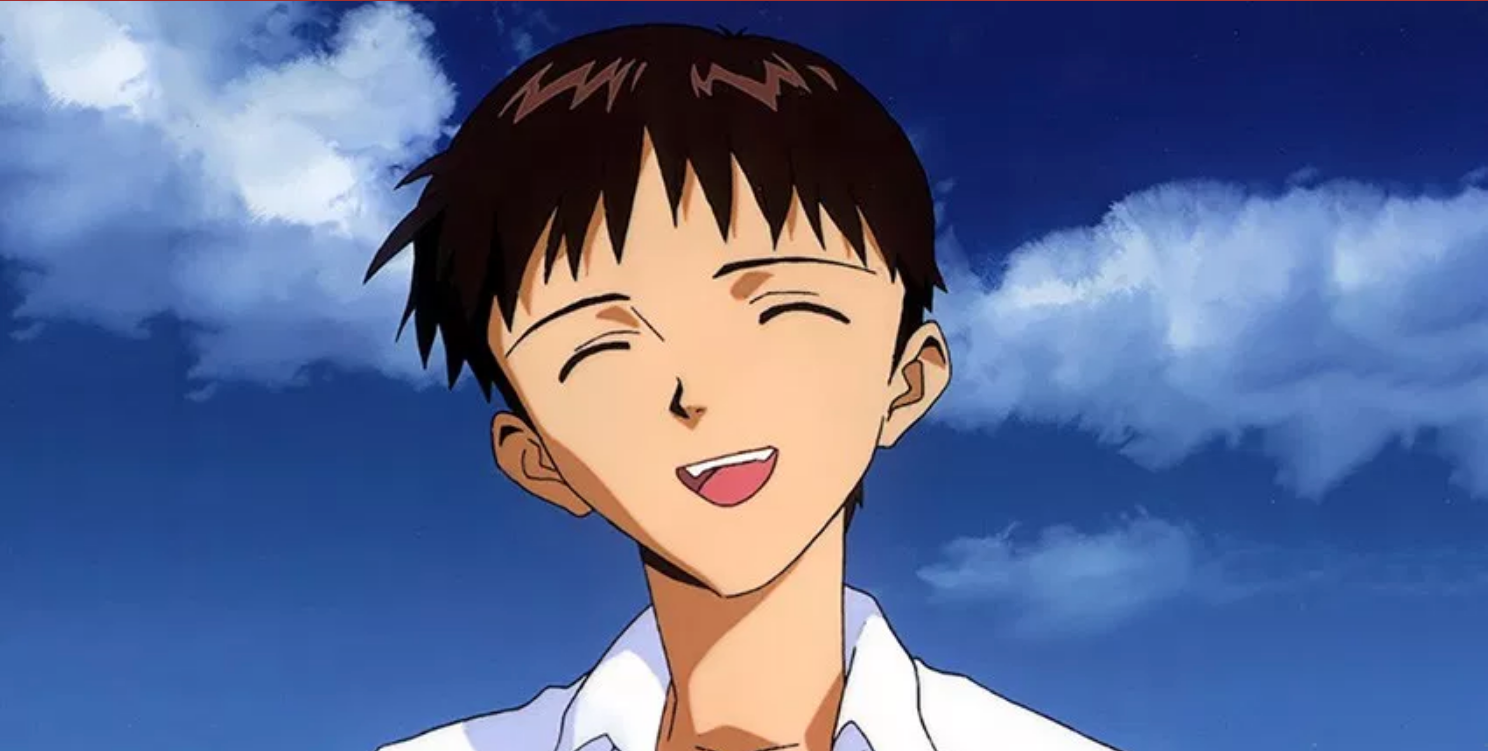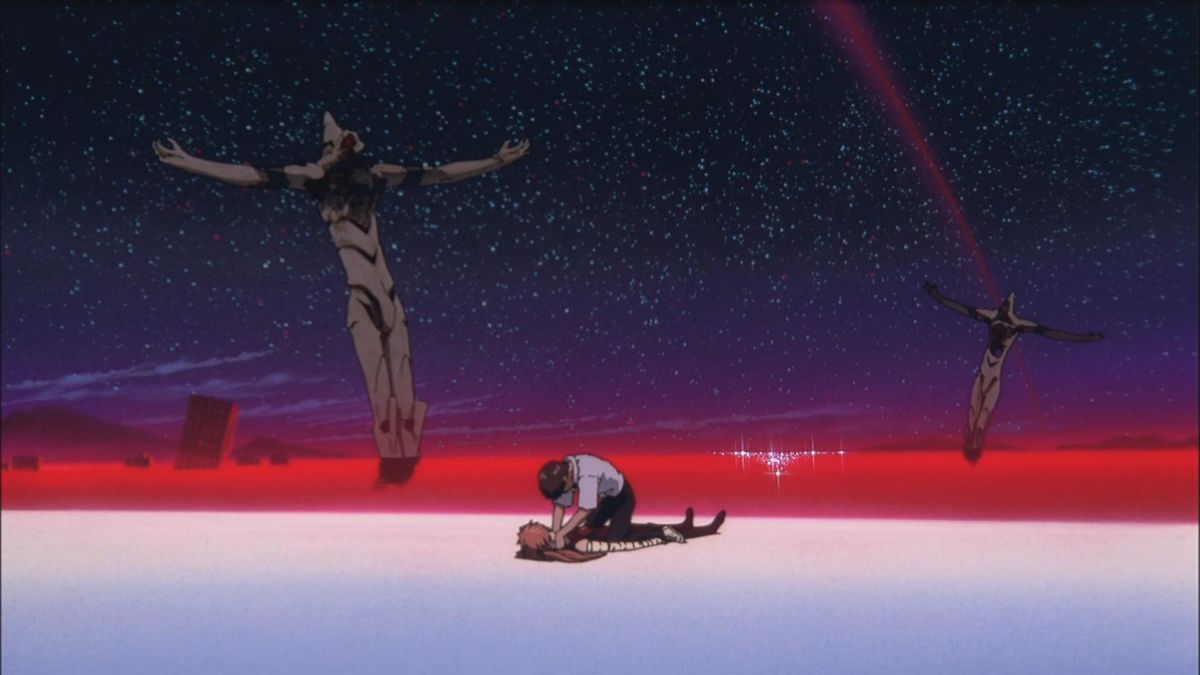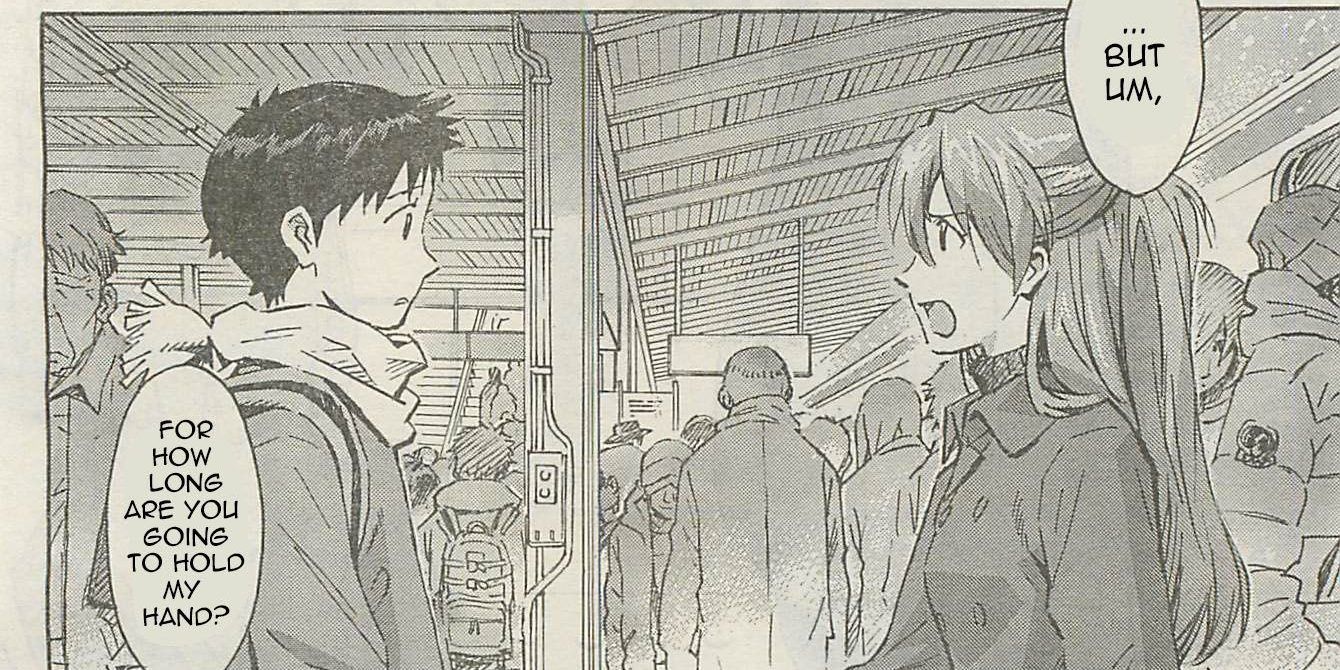Neon Genesis Evangelion is ending - again. Evangelion: 3.0+1.0: Thrice Upon a Time is the upcoming and final film in the Rebuild of Evangelion series, a film franchise that has been dormant since 2012. The film claims to be the true finale of the Evangelion saga, which started all the way back in 1995 with Gainax's original series. As the title of this film suggests, this "final" ending has been a long time coming. Before this new finale, let's reflect on how the series ended three times before.
The Original Proposed Ending
The Neon Genesis Evangelion Proposal, presented as a pitch to studios, offered an outline of the series. This outline aligns somewhat closely with the series for the first fourteen episodes, but deviates fast after that. The last few episodes are the most drastic departure. Kaworu appears several episodes earlier, and after that, things fall apart. Twelve mighty Angels (called Apostolos) depart from the moon, America and Eva Unit-06 (not featured in the series proper) completely disappear and something called "the ancient ruins of Arqa" become the key to triggering instrumentality, something Gendo Ikari in this version does not want.
The "Congratulations" Ending
The changes between the original proposal and the actual second half of the Evangelion TV series were the result of a combination of Anno dealing with his depression and Gainax running into budgetary problems. Both factors of Anno's self-therapy and Gainax's limited animation peaked with the final two episodes. After Shinji defeats Kaworu, the characters descend into an existential inner conflict as a result of Human Instrumentality. This is ultimately resolved with Shinji coming to the realization that his life is worth living, leading to the infamous "Congratulations" scene.
These two episodes are portrayed entirely through minimalist animation. There are hints that something bad happened, as seen with Misato being shot and Ritsuko floating in water, but otherwise, visual action has taken an abrupt stop. The most comprehensible part of this ending is a "dream" sequence where the cast is placed in a stereotypical school comedy setting.
Some fans have interpreted this to mean that Human Instrumentality creates numerous alternate happier timelines for Shinji. Manga spin-offs like Evangelion: Angelic Days and Evangelion: The Shinji Ikari Raising Project, as well as popular fan material like Evangelion: RE-TAKE, took this theory and ran with it. This is arguably why, in Rebuild of Evangelion, Kaworu appears aware that this isn't the first time he's met Shinji, stating that "This time, I'll make you happy," indicating he's the only one aware that the timeline is repeating.
End of Evangelion
Due to Evangelion's popularity and fan complaints about the last two episodes, Gainax was given the opportunity to create a cinematic finale to the series, one that offered a drastically different ending -- sort of. End of Evangelion is narratively similar to the TV ending, to the point many argue they're happening simultaneously. However, whereas the TV ending takes place inside its characters' heads, End of Evangelion is external.
Nine Mass Production Evangelions descend on NERV as part of a brutal attack on the organization. Most of NERV's staff gets gunned down, cut open and/or roasted alive, with only Misato protecting Shinji. Asuka breaks out of her catatonic state to defend NERV from the Mass Production Evangelions in one of the coolest fights in the entire series. Misato gets Shinji to his Evangelion, but dies in the process. By the time Shinji can assist Asuka, though, her Evangelion has run out of energy and the Mass Production EVAs have devoured her.
Gendo uses Rei to trigger Third Impact and start the Human Instrumentality Project -- directly contradicting the original proposed ending. However, Rei doesn't allow Gendo to use Instrumentality to unite with Yui, and rather hands the reigns over to Shinji, who, in his grief and frustration, condemns all humanity to blending into a hive mind. Like in the original series, Shinji ultimately ends Instrumentality, allowing mankind to return. However, the only person show to return is Asuka, who he starts choking before she strokes his cheek.
If this seems bleak, then just be grateful they didn't go with their alternate plan for the final scene, where Shinji, having lost his mind, is laying on the beach, clutching Rei's detached hand.
The Manga Ending
Evangelion's manga started alongside the anime, but didn't end until 2014. The manga ending is similar to End of Evangelion, with a few key differences, such as Shinji arriving in time to rescue Asuka from the Mass Production EVAs. Shinji is initially convinced that Instrumentality would be good for everyone, but realizes this isn't the case, and ends up cancelling the apocalypse.
Where the manga differs most from End of Evangelion is in its epilogue, which is far more optimistic. Some unknown time later, mankind has fully returned, albeit with no memory of the Evangelions, Angels or Third Impact. It's snowing again; following the cataclysmic damage done to the environment with Second Impact, this is a miracle. Shinji is living with his aunt, preparing for high school, when he stumbles into Asuka. Neither recognize each other, but feel drawn to one another as if by destiny.
This ending is to date the most optimistic ending of the series. It further reinforces the theory from the original series that Third Impact created a multiverse, designed to bring Shinji some form of happiness. It remains to be seen if this will be confirmed in Evangelion 3.0+1.0 and if that will prove to be the franchise's ultimate, true end.
This King Of The Hill / Neon Genesis Evangelion Mashup Video Is Perfect





